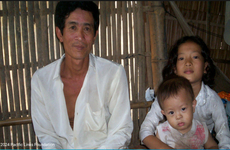
The Community Alliance for the Ethical Treatment of Youth
Tiana Reid — May 17, 2013 — Social Good
References: cafety.org & facebook
The Community Alliance for the Ethical Treatment of Youth, also known as CAFETY, is a member-driven advocacy organization that is run and operated by individuals who were in harmful residential care during their childhood. Their advocacy is done through campaigning, for instance, their 'Care NOT Coercion' Campaign.
Its founder and executive director, Kathryn Whitehead, was a 2013 Echoing Green Fellowship Finalist in the civil and human rights category. She also speaks at conferences and volunteers with the Bazelon Center for Mental Health Law and Policy's Leadership 21 Initiative and Court Appointed Special Advocates. CAFETY was also one of the top-rated nonprofits on the organizational review website, Great Non Profits.
Contact Information
Community Alliance for the Ethical Treatment of Youth website
CAFETY on Facebook
CAFETY on Twitter
CAFETY on Google Plus
CAFETY on YouTube
Its founder and executive director, Kathryn Whitehead, was a 2013 Echoing Green Fellowship Finalist in the civil and human rights category. She also speaks at conferences and volunteers with the Bazelon Center for Mental Health Law and Policy's Leadership 21 Initiative and Court Appointed Special Advocates. CAFETY was also one of the top-rated nonprofits on the organizational review website, Great Non Profits.
Contact Information
Community Alliance for the Ethical Treatment of Youth website
CAFETY on Facebook
CAFETY on Twitter
CAFETY on Google Plus
CAFETY on YouTube
Trend Themes
1. Member-driven Advocacy - Member-driven advocacy organizations are disrupting traditional advocacy methods by giving those directly affected a say in their own treatment and creating more effective campaigns.
2. Survivor-driven Organizations - Survivor-driven organizations provide disruptive innovation opportunities by harnessing the power of firsthand experience to create more impactful and effective advocacy campaigns.
3. Rethinking Residential Care - Advocacy organizations like CAFETY are driving innovation by bringing attention to issues of mistreatment in residential care and advocating for better alternatives.
Industry Implications
1. Nonprofit - Nonprofit organizations can disrupt traditional advocacy by empowering those directly affected to take greater ownership of the advocacy process.
2. Mental Health - Mental health organizations can harness the expertise of survivor-led groups to create more impactful campaigns and advocate for better care.
3. Child Welfare - Organizations focused on child welfare can use the survivor-driven model to bring attention to concerns with residential care and advocate for better treatment options.
3.1
Score
Popularity
Activity
Freshness























